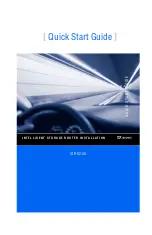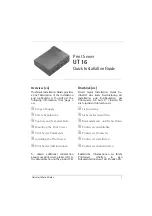121
FC-16 Storage Subsystem
data.
Performing Background Consistency Checks
Consistency checks can be performed periodically on every System Drive (SD), from the
Command Line Interface
(CLI) using the
startbcc
command. This command runs a
background consistency check
(BCC) on a SD for each rack, allowing all SDs to be checked in
a ‘round robin’ fashion. BCC is performed with fault correction disabled.
Note:
BCC operations are conducted at a low-priority level to minimize the
impact on system performance.
By default, the
mylex-sd-start-bcc
command is invoked periodically using
cron
. BCC will
start at 1:00 a.m. every Saturday for one SD in each of the RAID racks. All SDs in a RAID rack
will be checked in turn, one per week.
To disable a background consistency check, BCC can be disabled by running the
crontab list
command followed by "
crontab del <ID>
" where
<ID>
corresponds to the
mylex-sd-start-
bcc
data shown by the
crontab list
command. Once BCC has been disabled, you can run
startbcc
directly from the CLI, or configure it to run automatically with cron settings of your
choosing.
The
startbcc
command remembers each SD for which a BCC runs to completion. Every time
the command is run, the next eligible SD in the rack is checked. If a BCC is aborted for any
reason, or if it fails to complete, the same SD will be checked next time. Also, if an SD is skipped
for any reason, an entry will be made in the
event log
describing why the SD has not been
checked.
Because the aim of BCC is to detect unreliable disks, this operation will not start if there are
potential conflicts, and will be interrupted under certain circumstances. Specifically, Titan
cancels a BCC if one of the following events takes place:
•
Any System Drive on the RAID rack becomes critical or fails.
•
A command is issued to run a long operation that is not compatible with BCC, such as a
rebuild, a BGI, or another consistency check.
•
A
putconf
CLI command is issued, or new firmware is downloaded to disks or RAID
controllers.
•
The RAID controllers are reset.
Here are reasons for which BCC will skip a System Drive:
•
There is another long operation is running, including disk firmware being loaded.
•
There are recognizable problems with the RAID rack configuration, or the rack does not
have a suitable
hot spare disk
with which to perform a rebuild, if necessary.
•
More than one disk in the System Drive has experienced any disk errors, including PFA
warnings.


















